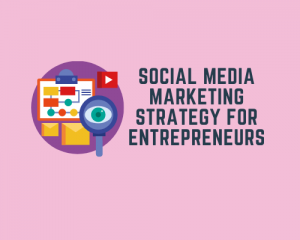Columnist Scott Vaughan says combining your predictive efforts with an ABM approach can help you identify optimal accounts and drive desired results.
 Predictive marketing holds tremendous promise, especially in identifying the optimal accounts and prospects to engage. According to the Aberdeen Group, B2B marketers are leaning into predictive in a big way; more than 50 percent of B2B enterprise organizations are now using, piloting or plan to implement predictive analytics in the coming year. Big growth numbers — fast.
Predictive marketing holds tremendous promise, especially in identifying the optimal accounts and prospects to engage. According to the Aberdeen Group, B2B marketers are leaning into predictive in a big way; more than 50 percent of B2B enterprise organizations are now using, piloting or plan to implement predictive analytics in the coming year. Big growth numbers — fast.
The potential payoff is enticing: a much more effective way for marketing and sales teams to collaborate and use data to identify, engage, nurture and create customers from organizations most likely to purchase. With the right mix of technology, cheap processing power, sophisticated data models and data science talent, companies can now apply predictive data to demand marketing efforts to increase their impact.
It all starts with the account list
Today, so much effort and emphasis are placed on account-based marketing (ABM) and the infamous “account list.” The list — ideally informed by predictive models — discovers the target accounts that are most likely to be interested and to buy your solution or service.
This is a critical effort to get right. However, what many marketing executives fail to grasp is that lists are just the beginning. Ensuring ROI (return on investment) on your predictive effort requires much more work.
Once predictive intelligence has identified the right target accounts, B2B marketers must then engage the right decision-makers at those accounts. It’s essential to remember that while the company’s name may be on the check, key individuals representing those companies are the ones who scope out the solution and sign that check.
This is where combining your predictive effort with an ABM approach can really accelerate your effort to nurture new prospects within target accounts.
Predictive only pays off when you have the right contacts
So, where can you find the right contacts to launch your account-focused marketing effort? The first and quickest way is to look right inside your CRM (customer relationship management) for contacts at the target accounts. You likely can build your first ABM outreach programs around these contacts.
However, for most organizations whose databases vary widely in quality and size, this rarely yields enough of a universe to generate the engagement required to get scalable ROI mid- to long-term (enough contacts at enough target companies). This means marketers must look outside their existing databases and start generating new contacts who fit the persona profile within target accounts.
Outbound ABM-focused programs for new contacts
To acquire the right contacts within predictive-defined accounts, marketers are turning to outbound marketing efforts. This is a departure from the big shift to inbound marketing we’ve seen over the last five to seven years, in which brands have spent millions to drive as many visitors to their websites as possible (and hopefully, convert them into leads and eventually, opportunities).
Outbound programs developed to generate specific contacts at target companies often partner with third-party providers. These partners are experts in such tactics as highly targeted webinars, face-to-face events, content syndication, advertising, search and tele-prospect outreach programs. With a few exceptions, these channels can be used to specifically generate contacts with exact roles/titles at selected accounts.
This top-of-funnel outbound effort must also be connected to nurturing efforts (marketing automation) and sales processes (CRM). This is critical so that:
- the contact/lead (data) generated can quickly and efficiently be followed up by sales or become part of a marketing nurturing program for continuous engagement and qualification; and
- you can apply a data-driven approach to test, select and optimize the right mix of channels that yield the greatest return on generating new customers within the targeted account list.
This effort can be time-consuming, resource-draining, and it will get expensive quickly. This is why it’s important to make sure your predictive data and processes are integrated with both your core marketing and sales systems and the outbound marketing programs you use to generate leads.
Predictive is “always on,” from list to new-customer generation
The other important lesson learned is that predictive-driven marketing is not a “program” that stops and starts. It’s more than a one-time list generation.
On the contrary, the effort needs to be “always on” and dynamic. This means ensuring predictive intelligence is integrated with ABM program data to continuously inform account targeting and generate the right number and quality of decision-makers to fill the sales pipeline. Think of it is a closed-loop systematic approach.
Clearly, predictive analytics starts with identifying the best and optimal account targets. This is just the beginning.
To derive mid- and long-term value from your predictive investment, it’s critical to continuously fuel new contacts from outbound account-based marketing programs where prospect, account and performance data are dynamically updated and informing what’s working to drive desired results. Otherwise, you’re simply using predictive to build great lists that aren’t actionable and have little value to the organization.
Some opinions expressed in this article may be those of a guest author and not necessarily Marketing Land. Staff authors are listed here.
Marketing Land – Internet Marketing News, Strategies & Tips
(52)
Report Post









